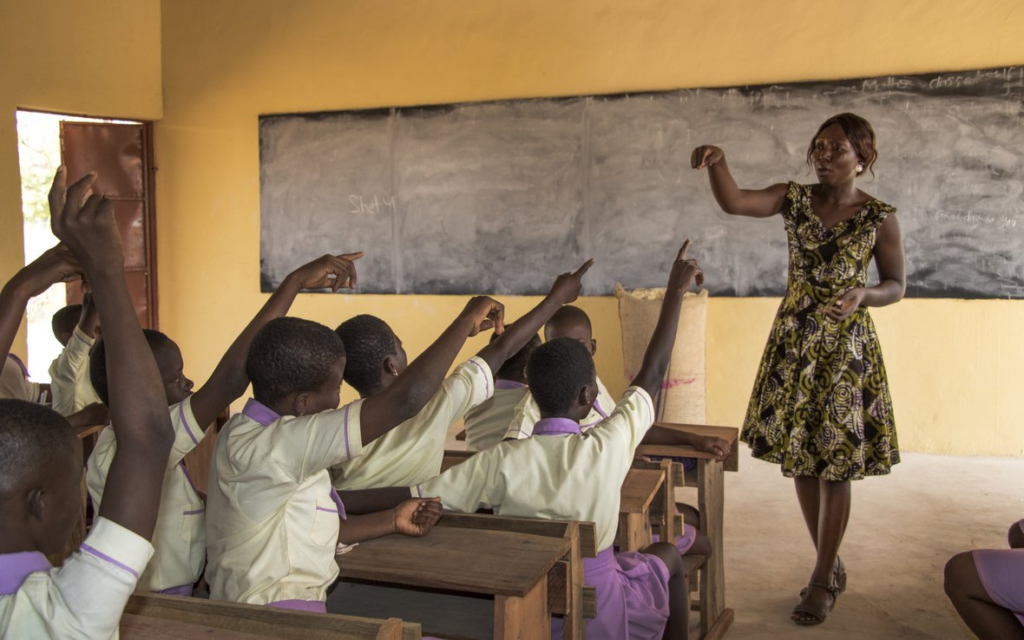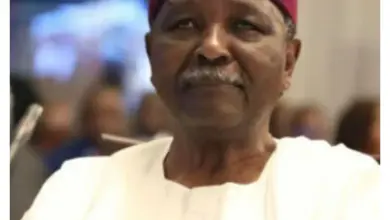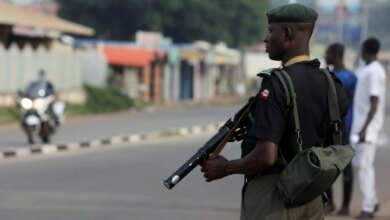Gideon Amoako Sarpong: Ghana Education Service gets the wrong memo?


The L1-L2 language debate has been resurrected, thanks to the policy directive announced by Ghana’s Minister for Education, Haruna Iddrisu. According to news reports by citinewsroom and myjoyonline dated 25th October, 2025, Mr Iddrisu announced that he had specifically directed the Ghana Education Service (GES) to enforce mother-tongue instruction in schools nationwide. Clearly, the mother-tongue instruction dilemma in pre-tertiary schools across the country ought to be tackled, taking into consideration practical human resource and institutional realities.
Since it is not a walk in the park, one can only assume that the Government of Ghana has thought long and hard about it and is, at this particular point in time, determined to steer a hitherto difficult policy direction that could potentially improve pre-tertiary education quality as outlined in the country’s Education Strategic Plan (2018-2030).
My concern, however, with this policy directive has to do with the specific ministerial directive to the Ghana Education Service. Every observer of the pre-tertiary education space in Ghana would agree that we had a structural anomaly in the past where GES, as a competitor, had oversight responsibility over other competitors (private schools). This arrangement was largely counterproductive, given that the regulated (private schools) were, according to numerous research findings, in a better position (improved learning outcomes) than the regulator (GES). It also meant that rather than putting its unusually large house in order, the proprietor of public schools on behalf of government was preoccupied with regulating private schools.
What this simply meant was that despite its own noticeable shortcomings or challenges, GES was, in effect, regulating an objectively better competitor. In fact, students admitted into high-performing senior high schools were from GES-regulated private schools. This ultimately led to an understandable government intervention that reserved specific admission quotas in grade A senior high schools across the country for students from public junior high schools.
Enter the Education Regulatory Bodies Act, 2020, and we had initial attempts at correcting a regulatory irony and a clear case of a longstanding reverse accountability. Act 1023 of this law effectively changed the regulatory failure and mandated the National Schools Inspectorate Authority (NaSIA) to “develop, publish, promote and enforce the highest quality standards and guidelines for quality education in public and private pre-tertiary education institutions” throughout the country. Understandably, GES had so much on its plate, and it was only natural for the regulatory mandate to be handed over without fuss to NaSIA. Unfortunately, this was not the case.
As a matter of fact, this regulatory transition was not without a fight, as NaSIA (perceived as the new education bogeyman in town) encountered fierce resistance during its stakeholder engagements across the country. A prolonged turf war ensued and was actually exacerbated by a kind of token provision in the Pre-Tertiary Education Act, 2020 (Act 1049) that failed to completely transfer private pre-tertiary education regulation (especially at the district level) to NaSIA. Meanwhile, GES still held on to the few remaining crumbs of its regulatory authority, understandably clinging to them. In a particular region, Ghana’s National Security apparatus identified this turf war as a threat and called for prompt efforts to resolve it.
Fast forward to October 2025, and we have a ministerial directive that can potentially blur the clear lines of distinction regarding what GES should account for per its stewardship of public schools on behalf of government and what NaSIA should be doing in terms of demanding accountability from both public and private pre-tertiary schools. Fortunately, it is never too late for the Honourable Minister to rectify what could rightly be described as an oversight and task NaSIA to (as a matter of urgency), update its inspection framework and tools to accommodate the new policy expectations regarding mother-tongue instruction.
As an inspectorate and ideally the quality assurance arm of the Ministry of Education, NaSIA is in a better position to carry out this ministerial directive. GES should be allowed to focus on improved teaching and learning outcomes in its own schools and not be burdened with enforcement responsibilities beyond its domain. While at this, the provision in the Pre-Tertiary Education Act, 2020 (Act 1049) that still assumes GES involvement in private pre-tertiary education should be amended. Such a step will align perfectly with the spirit and letter of the Education Regulatory Bodies Act, 2020, and contribute to a heightened awareness of Ghana’s new version of pre-tertiary school quality and effectiveness. Simply put, the regulator must be independent and not be caught up in the same business as the regulated.
*******
The writer, Gideon Amoako Sarpong, is a student at Concordia University in Montreal, Canada.
DISCLAIMER: The Views, Comments, Opinions, Contributions and Statements made by Readers and Contributors on this platform do not necessarily represent the views or policy of Multimedia Group Limited.
DISCLAIMER: The Views, Comments, Opinions, Contributions and Statements made by Readers and Contributors on this platform do not necessarily represent the views or policy of Multimedia Group Limited.
Source link





